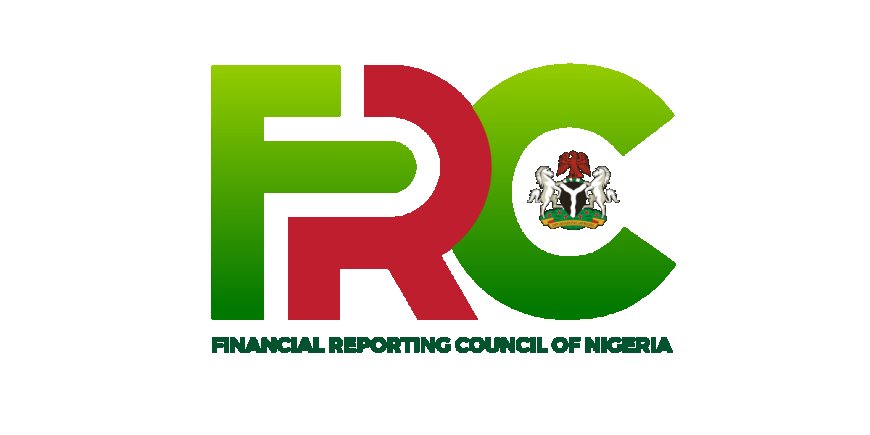FRC, SEC push ethical governance at SCGN’s 20th anniversary

The Financial Reporting Council of Nigeria, the Securities and Exchange Commission, and other stakeholders have called for ethical governance at board levels as the nation faces multiple disruptions.
The call was made at the 20th anniversary corporate governance conference of the Society for Corporate Governance Nigeria on Thursday, themed ‘Strengthening Ethical Governance in a Disrupted World: Reflection on Governance’s Journey for a Sustainable Future.’
The SCGN conference marked two decades of promoting integrity, transparency, and responsible leadership. It provided a platform for regulators, board leaders, and governance professionals to explore practical strategies for building resilient, ethical, and future-ready institutions.
The Executive Secretary and Chief Executive Officer of the FRC, represented by the Coordinating Director, Directorates of Corporate Governance and Inspections & Monitoring, Titus Osawe, highlighted several emerging challenges threatening ethical governance in Nigeria.
He identified issues such as knowledge gaps, greenwashing, data manipulation, digital disruption, artificial intelligence, and digital assets. He stressed that organisations must demonstrate their commitment to ethics and integrity through strong ethical leadership and sound governance.
“Strengthening ethical governance is a collective responsibility. I call on all stakeholders, organisations, institutions, and individuals to prioritise ethics and integrity.
We must drive ethical governance intentionally by working together to build a more sustainable future for our country,” he said.
We at the FRC are committed to promoting ethical governance. We will continue to set standards, provide guidance, monitor and enforce compliance, and where breaches occur, impose applicable sanctions. Together, we can create a culture of transparency, accountability, and integrity that benefits us all. We remain steadfast and resolute in strengthening ethical governance.”
In his remarks, the Director-General of the SEC, Dr. Emomotimi Agama, represented by the Head of the Lagos Zonal Office, John Briggs, underscored the urgency of addressing governance and sustainability challenges.
“The world is grappling with the interconnected challenges of climate change, social inequality, technological disruption, and evolving investor expectations,” he said.
“In this era of profound transformation, the principles of sound governance and transparent sustainability reporting have transcended mere compliance. They are now fundamental pillars of long-term value creation, competitive resilience, and sustainable national development. For emerging economies like Nigeria, this imperative carries particular weight. We face the dual challenge of stimulating economic growth and attracting investment while ensuring that such growth is inclusive, equitable, and responsible. Corporate governance provides the essential framework for meeting these challenges.”
Commending the SCGN for its role in promoting governance standards, Agama said, “Through its unwavering commitment to advocacy, capacity building, and research, the Society has consistently advanced awareness and best practices. Its focus on reviewing and highlighting governance and sustainability trends has provided an invaluable benchmark for boards, regulators, investors, and the public alike.
“This work has enriched national discourse, encouraged high standards, and prepared Nigerian businesses to engage confidently on the international stage. Therefore, this 20th anniversary is more than a milestone; it is a testament to the indispensable role institutions play in shaping a nation’s corporate character.”
He also called for the incorporation of good governance and sustainability principles into the “very DNA of institutions,” adding that transparency, accountability, and inclusiveness must not be treated as optional add-ons but as “fundamental, non-negotiable components” of doing business in Nigeria.
The keynote speaker, Dr Omobola Johnson, Board Chair of Guinness Nigeria Plc, emphasised that diversity on boards is key to achieving ethical governance.
“In a world without a rule book, no single demographic has a monopoly on the knowledge and expertise required for effective governance,” she said. “Diverse boards with different lived experiences bring richness and depth to discussions and decision-making. They also foster integrity and ethics by ensuring that boards are not monolithic but truly representative, essential for making ethically sound decisions that consider a broad range of stakeholders.”
She added, “Integrity and ethical governance go hand in hand. They are not merely top-down mandates but shared values that boards must champion. This requires a long-term view of enterprise success defined by broader metrics such as resilience, trust, and strategic clarity, all vital for navigating uncertainty in a constantly changing world.”
In his opening speech, the President of SCGN, Muhammed Ahmad, acknowledged the disruptive nature of today’s operating environment and the resulting need for stronger ethical grounding.
“In an environment that is highly challenging and disruptive, where AI is constantly reshaping our world, we must ask: what is the role of ethics? How can we ensure that ethical behaviour remains part of our DNA?” he asked.
“Ethics is not just about compliance or ticking boxes. It’s about living, acting, and relating with others based on the highest ethical standards. Governance, therefore, is about guiding our organisations to make the right choices, not taking shortcuts. The easy path is not always the right one. We must remain transparent, fair, and accountable to all stakeholders.”
One of SCGN’s founding directors, Professor Pat Utomi, brought a philosophical perspective to the discussions. Referencing economic historian Carlo Cipolla’s Five Laws of Human Stupidity, Utomi observed that “sometimes emotion overtakes reason,” and called for the development of conscience “so that we can always speak truth to power and help those who might otherwise be carried away.”
The conference also featured a panel discussion with prominent speakers, including the Chairman, Presidential Committee on Fiscal Policy and Tax Reforms, Mr. Taiwo Oyedele; CEO, LeadRight Consultant (South Africa), Ms. Kim Anderson; Director, NCGC, Mrs Yeside Kazeem; and Chairperson, Coronation Life Assurance Limited, Mrs Suzanne Iroche. The session was moderated by the Group Managing Director, Zedcrest Group, Mr. Adedayo Amzat.
Three new publications were launched at the event: Corporate Governance and Sustainability Reporting in Nigeria, Governance in Motion: 20 Years of Corporate Governance Influence and Impact, and the 28th edition of the Journal of Corporate Governance.

 admin
admin 


